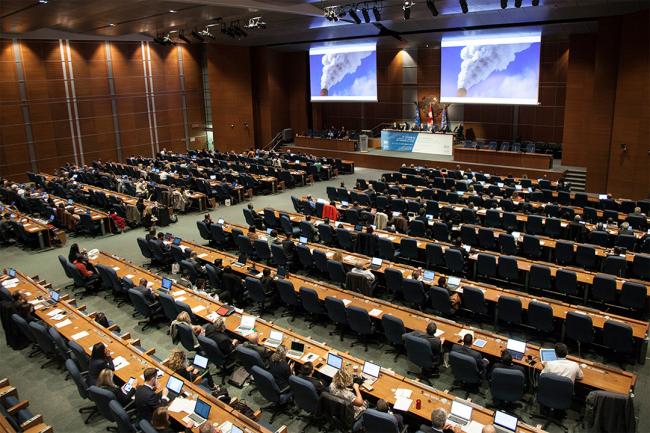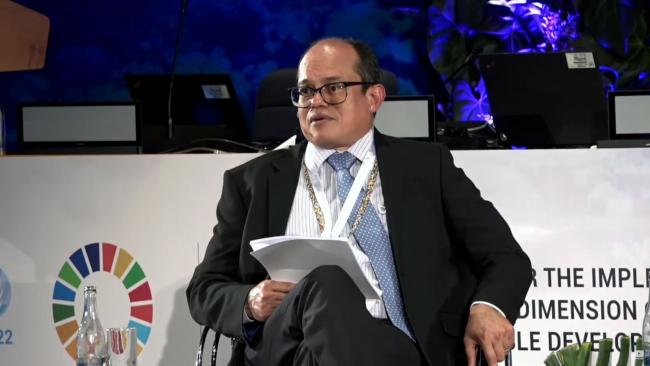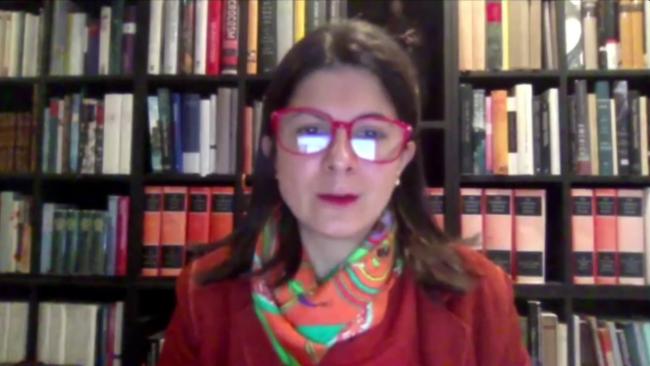35 Years of Compliance Mechanisms
What are the key lessons learned about compliance mechanisms for multilateral environmental agreements (MEAs)? This Flagship Event brought together leaders from more than half-a-dozen MEAs to share experiences and celebrate 35 years of implementation and compliance mechanisms established under MEAs administered by UNEP. Organized by the secretariats of eight global MEAs, the event addressed several issues, including why such mechanisms matter, the value of more collaboration among MEAs, linkages between reporting and other MEA obligations, and lessons for a future agreement on plastics. The event, which took place on 4 March 2022, was held both online and in-person in Nairobi, Kenya. It was moderated by Rolph Payet, Executive Secretary of the Basel, Rotterdam and Stockholm Conventions.
Xiaolin Guo, President of the Montreal Protocol’s Implementation Committee, noted the Protocol’s success in phasing out 99% of controlled, ozone-depleting substances. She highlighted the Protocol’s three independent assessment panels, provisions for gradually strengthening control measures through adjustments and amendments, consideration of developing countries’ circumstances, and financial and technical assistance. She noted compliance procedures under Article 8 as well as diplomacy’s role in finding an “amicable solution”.
Monika Stankiewicz, Executive Secretary of the Minamata Convention on Mercury, highlighted the importance of timely reporting and strong data from parties. She also reflected on how more recent MEAs like the Stockholm and Minamata Conventions had drawn lessons from older MEAs, observing that reporting continues to evolve and improve, becoming more useful in supporting implementation and compliance.
Jimena Nieto Carrasco, former Chair and Vice-Chair of the Cartagena Protocol on Biosafety’s Compliance Committee, outlined the Protocol’s compliance procedures. She explained that cases of non-compliance are initially followed up on informally and with reminders, becoming more formal if the issue continues. She also emphasized that actions are both supportive (offers of assistance) as well as punitive (naming non-compliant countries and issuing cautions).
Amy Fraenkel, Executive Secretary of the Convention on Migratory Species (CMS), explained how, as an older treaty, the CMS did not initially have a compliance mechanism, but in 2017 decided to develop a review mechanism that was supportive, non-adversarial and facilitative, with a focus on core obligations and reporting.
Inger Andersen, Executive Director, UNEP, highlighted the value of finding ways in which MEAs can work together and share ideas and practices. Citing the examples of the Montreal Protocol and the Rotterdam and Stockholm Conventions, she said compliance and monitoring provisions were critical to ensure they have a real impact. She stressed the positive aspect of compliance regimes, including engagement and technical support, as well as enforcement.
During a question-and-answer session, speakers were asked about national implementation and how “carrots” (positive support) can assist compliance. For CMS, Amy Fraenkel provided an example of detailed legal analysis and advice on legislation being provided to 50 countries. In the context of the Montreal Protocol, Xiaolin Guo highlighted flexibility and financial and technical assistance, grace periods for developing countries, and exemptions where alternatives are not available, as well as technology transfer and training, which she said have collectively had a major impact.
In closing remarks, Franz Perrez, Switzerland’s Ambassador for the Environment and Head of the International Affairs Division at the Swiss Federal Office for the Environment, said compliance mechanisms are important not only collectively for all, but for the benefit of each party. Stating that compliance with MEAs should be viewed by parties as an act of self interest, he stressed that many compliance mechanisms for MEAs are generally supportive and positive. In terms of lessons learned over the past decades, he noted that while older MEAs did not originally foresee the need for compliance mechanisms, MEAs were learning from one another and evolving these mechanisms. He noted that although negotiating compliance mechanisms can be difficult in the first place, they are clearly effective. On the upcoming plastic negotiations, he urged clear obligations and including critical elements of a compliance mechanism up-front in the agreement.
To receive free coverage of global environmental events delivered to your inbox, subscribe to the ENB Update newsletter.



